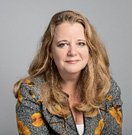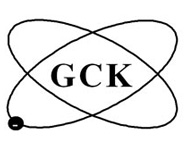Deze lezing is afgelast en verplaatst naar 29 september 2022.
Avondlezing door prof.dr. Moniek Tromp georganiseerd door de Groningse Chemische Kring.
Batterijen: duurzame energieopslag voor de toekomst
Samenvatting
The urgency posed by global warming to transform our fossil fuel-dependent society into one based on renewable energy sources creates grand technological challenges, one of them being renewable energy storage for mobility and intermittent wind and solar electricity. Batteries are widely seen as key technology for electrification of transport, and for future medium-to-large scale electricity storage. This requires a huge leap in battery developments, especially regarding energy storage density, costs and materials sustainability.
Next generation battery chemistries that theoretically might fulfill these requirements are proposed, but to enable their implementation, parasitic reactions have to be diminished. These side reactions cause underperformance, degradation and finally battery failure. To improve battery performance, better insights in the reaction mechanisms occurring during discharge and charge cycles are required. Advanced spectroscopic methods have been developed and applied, which have provided insights in for example deactivation pathways and mobility of speciation through the battery. These in turn have led to novel battery material chemistries and architectures, as well as novel cell designs.
Verkorte loopbaanbeschrijving van Prof. Dr. Moniek Tromp Moniek Tromp finished her MSc in Chemistry, with specialisations in spectroscopy and catalysis, at the University of Utrecht (Nld) in 2000. She then obtained a PhD from the same university, in the fields of homogeneous catalysis and time-resolved X-ray absorption spectroscopy with Profs. Koningsberger and van Koten. After finishing with distinction (‘cum laude’, greatest honours possible) in 2004, she moved to the University of Southampton (UK) for a Post-Doctoral Research fellowship in the fields of heterogeneous catalysis and spectroscopy. In 2007, she was awarded an EPSRC Advanced Research Fellowship to start her own independent academic career (and became lecturer). She moved to Germany in 2010, where she took up a position as professor in Catalyst Characterisation at the Technical University Munich. In 2014, she decided to come back to the Netherlands, working at the University of Amsterdam. From July 2018 she has taken up the Chair of Materials Chemistry at the Zernike Institute at the University of Groningen. (From January 2023, Moniek will take over as Institute Director).
Moniek Tromp finished her MSc in Chemistry, with specialisations in spectroscopy and catalysis, at the University of Utrecht (Nld) in 2000. She then obtained a PhD from the same university, in the fields of homogeneous catalysis and time-resolved X-ray absorption spectroscopy with Profs. Koningsberger and van Koten. After finishing with distinction (‘cum laude’, greatest honours possible) in 2004, she moved to the University of Southampton (UK) for a Post-Doctoral Research fellowship in the fields of heterogeneous catalysis and spectroscopy. In 2007, she was awarded an EPSRC Advanced Research Fellowship to start her own independent academic career (and became lecturer). She moved to Germany in 2010, where she took up a position as professor in Catalyst Characterisation at the Technical University Munich. In 2014, she decided to come back to the Netherlands, working at the University of Amsterdam. From July 2018 she has taken up the Chair of Materials Chemistry at the Zernike Institute at the University of Groningen. (From January 2023, Moniek will take over as Institute Director).
She has been awarded prestigious fellowships/awards like the EPSRC Advanced Research Fellowship, NWO VIDI and the NWO Athena prize. She is active in numerous science advisory and review panels of large research facilities and universities internationally, part of a European Science Strategy team for large facilities, has published close to 100 papers in high profile journals and given over 80 invited lectures worldwide.
She is chair of the Dutch Catalysis Society (of the KNCV). She is co-chair of the organizing committee of the annual conference on Catalysis (NCCC) in The Netherlands. Gender and diversity are important for her and she has been active as Gender Equality Officer (D) and is now developing programs for primary school on science and engineering as well as gender bias issues. From April 2019, she has taken up a board position at the National Network for Female Professors (LNVH). She is a board member of the Dutch Science Association NWO (division ENW) since May 2019.
Her research focusses on the development and application of operando spectroscopy techniques in catalysis and materials research, incl. fuel cells, batteries, photochemistry, as well as arts, with a focus on X-ray spectroscopy techniques. Novel (time resolved) X-ray absorption and emission spectroscopy methods have been developed as tools in catalysis and energy material (battery and fuel cell) research. This includes the development of the required operando instrumentation and cells, as well as data analysis and theoretical methods. Application of the techniques to fundamentally or industrially interesting catalytic processes and materials has been pursued, providing unprecedented insights in properties and mechanisms.
Introducé(e)s zijn van harte welkom.
Graag vooraf bericht als u verwacht te komen.
Stuur daartoe een mail naar gck@kncv.nl of kommer.brunt@planet.nl.

